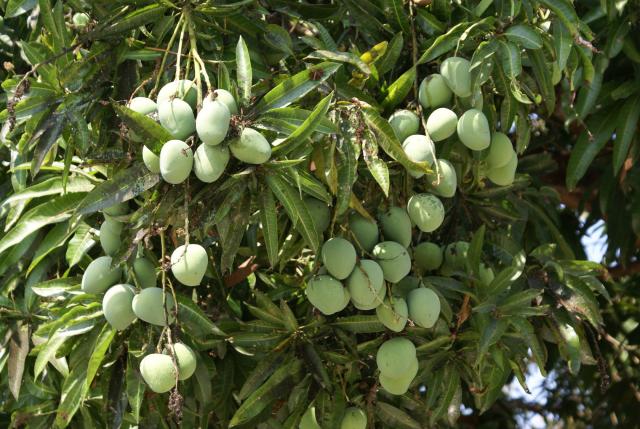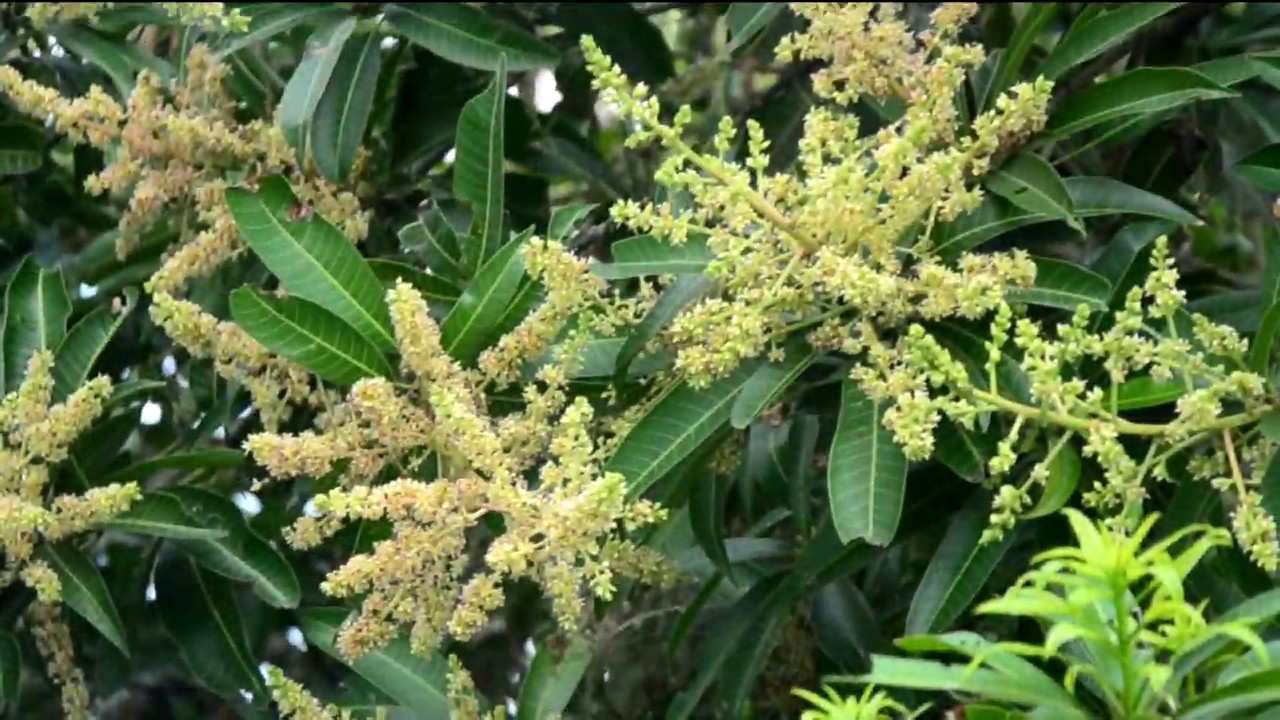Mangifera indica L. (Mango Tree)
________________________________________
Botanical Description:
• Scientific Name: Mangifera indica L.
• Family: Anacardiaceae
• Genus: Mangifera
• Common Name: Mango
Common Names:
• English: Mango
• Malayalam: മാവ്
• Tamil: மா
________________________________________
Uses of Mangifera indica (Mango):
1. Culinary Uses:
• Fruit: Mango is one of the most popular and widely consumed fruits worldwide. It is eaten fresh, and also used in a variety of products such as juices, smoothies, jams, jellies, and ice creams. The fruit has a sweet, tangy, and fragrant taste, and comes in various varieties with different colors and flavors.
• Unripe Mango: The green, unripe mango is often used in salads, pickles, and chutneys. It has a sour taste and is a key ingredient in many traditional recipes in India and Southeast Asia.
• Mango Pulp: The pulp is often used in sweets and desserts, such as mango kulfi (Indian ice cream) and mango lassi (a yogurt-based drink).
• Mango Seed: The seed, although not commonly consumed, can be processed and used in certain traditional food preparations or ground into flour.
2. Medicinal Uses:
• Rich in Vitamins: Mango is rich in vitamins, especially vitamin C and A. It is considered good for skin health, improving eyesight, and boosting the immune system.
• Digestive Health: Mango contains enzymes such as amylases, which aid in digestion. It is often consumed to help with digestion and improve bowel movements.
• Antioxidant Properties: Mangoes contain powerful antioxidants like beta-carotene, which help in neutralizing free radicals in the body, potentially reducing the risk of chronic diseases.
• Traditional Remedies: In traditional medicine, mango leaves and bark are used in various forms (e.g., decoctions, infusions) to treat conditions like diabetes, diarrhea, and high blood pressure.
• Mango Kernel Oil: The oil extracted from mango seeds is sometimes used in Ayurvedic treatments for skin ailments and to treat hair problems such as dandruff.

